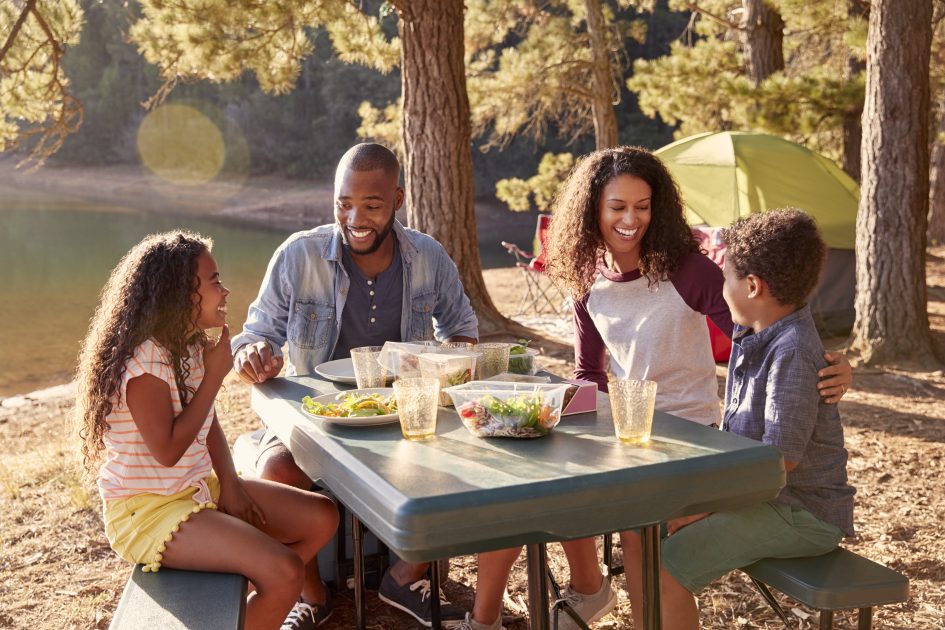Picture this scene: leaves blowing in the wind, water moving down a river and the sun peeking through the sky. Birds are chirping in the distance. You take a deep breath, filling your lungs with fresh air. Connecting with nature and spending time outdoors is one way to take a break and focus on our health. Camping is a fantastic way to spend time outdoors, unplug and take a break from daily routines.
What comes to mind when you hear the word camping? Nature trails? Campfires? Assembling the tent or RV? Time with family and friends? Maybe even bugs? Whatever comes to mind, the essential topic of camping safety should make the list, too.
Spending time in nature has countless benefits. According to Harvard Health, these include increased levels of vitamin D, exercise and positive mood; improved concentration; and increased chance of healing faster during recovery after surgery. Spending time outside can also reduce stress, boost energy levels, and improve sleep and creativity.
In addition to the safety tips below, check out our article on tips for visiting U.S. national parks for more information.
Below are guidelines from The Kampgrounds of America (KOA) to ensure safety measures are incorporated into your fun-filled camping trip.
- Choose the right shelter and site. Consider your age, physical limitations and medical needs, as well as those in your group. Determine what amenities are necessary and whether you should stay in a tent, cabin or RV.
- Keep tabs on the weather. Pack for inclement weather regardless of forecasts. Only 33% of campers plan their trips at least one month in advance – avoid common camping mishaps by being proactive campers.
- Pack and store food safely. Leaving food unattended can attract wildlife including bears, bugs and birds. Pack your food in airtight containers and store it in a cooler. And keep your cooler filled with ice to make sure perishable foods like meat and dairy stay refrigerated properly.
- Practice fire safety. Campfires should be at least 15 feet from tent walls, shrubs and trees. Keep fires small and never leave them unattended. Always keep a water bucket nearby and put the fire out before leaving or going to sleep – be sure to drown all embers, not just the red ones.
- Be aware of bugs. Use bug repellent and check your skin and clothes for ticks daily. Long-sleeve shirts and full-length pants are recommended when hiking to avoid direct contact with plants, bushes and insects.
- Be aware of allergies. Use caution if you have any known allergies. Keep a first-aid kit handy in case of swelling, dizziness or labored breathing. You might also bring Benadryl and cortisone cream.
- Protect your skin from the sun. On cloudy and sunny days, wear sunscreen or long clothing to protect yourself from UV rays. The sun is strongest during midday hours. Seek shade and wear sunglasses and a hat for layered protection.
- Stay hydrated. Drink water regularly throughout the day, even if you do not feel thirsty. Feeling thirsty is a sign you are already dehydrated.
- Be aware of wildlife. Avoid touching and feeding wild animals. If you do touch wildlife, wash your hands or use a hand sanitizer with an alcohol concentration that contains at least 60% alcohol.
- HAVE FUN – but remain alert. While enjoying your camping experience, pay attention to your body. Make sure to get enough sleep, and limit alcohol intake.
Sources:
koa.com/blog/camping-safety-tips/
health.harvard.edu/newsletter_article/a-prescription-for-better-health-go-alfresco

